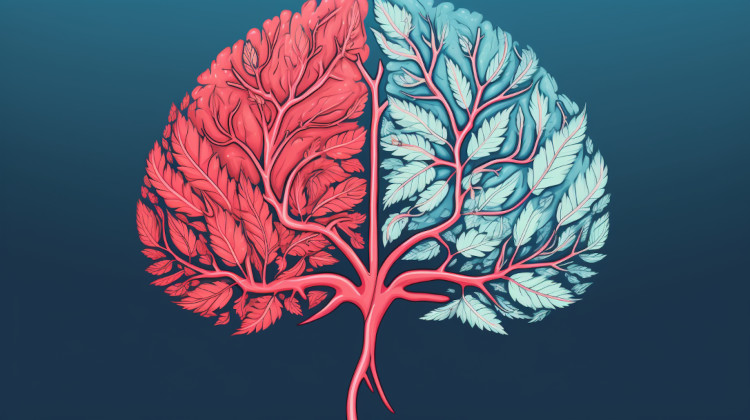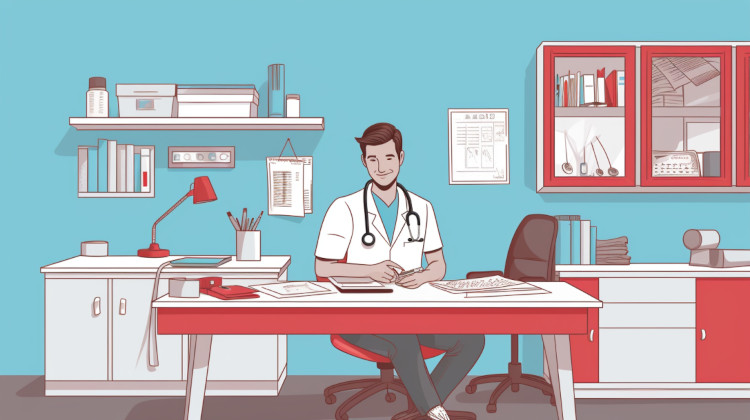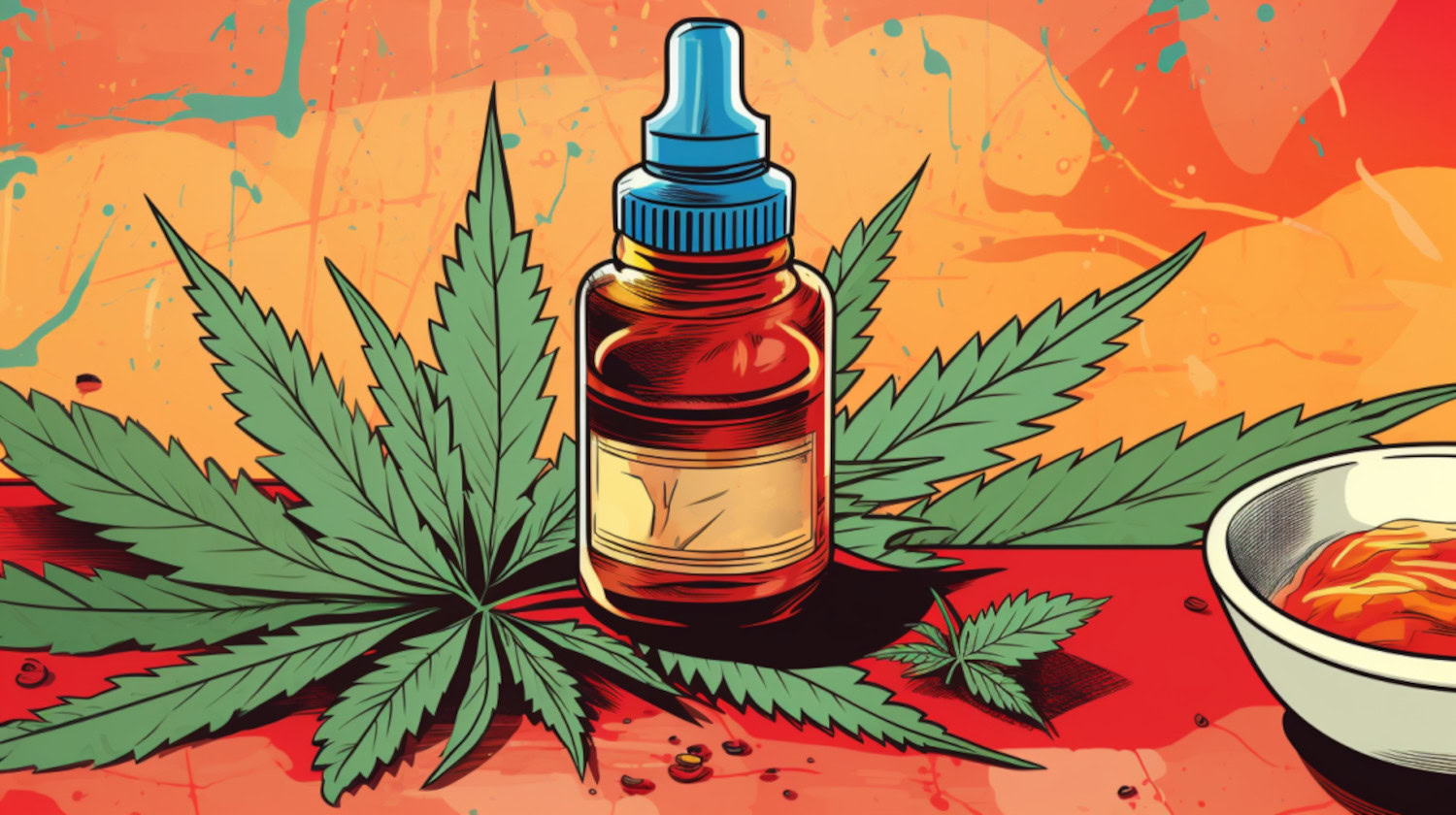Cannabidiol (CBD) is naturally found in the cannabis plant. With the rise of various health trends, CBD has quickly become more and more popular. Understanding what CBD is and how it interacts with the body is important, especially if you’re seeking a specific benefit.
CBD is known for a variety of benefits. Some individuals use CBD for specific goals, such as pain relief, while others look for more generalized wellness. If you’re new to taking CBD, it's natural to have questions. As always, speaking with your doctor before making health decisions is important, and you should only consume CBD products from a reputable source.
In general, CBD is considered to be safe. If you’re going to be taking CBD and you’re wondering what dose is right for you, you may be questioning whether or not it’s possible to overdose on CBD. While research is limited, what is available points in a very clear direction.
Can You Overdose on CBD?
Here’s the big question: can you overdose on CBD?
In order to answer this question effectively, there are a few different things to understand. While a lethal overdose of CBD has never been reported, it is possible to overdose on this compound. But, that's only by the strictest definition. An "overdose" literally just means that it's too large a dose. So, by that definition, it is possible to take too much CBD and experience some unpleasant effects, like drowsiness, even if it's not likely to be harmful, let alone fatal.
Most people don’t need to worry about overdosing on CBD. As long as you’re staying within recommended dosages for the product you’re using, there should be minimal side effects from CBD.
Some people start small, with as low as 25mg/day, while others will take up to 1,500mg/day chronically.
While overdose isn’t something that’s generally associated with CBD, it is important to think about your individual wellness. For example, if you know you’re more sensitive to medications, you may want to start with a smaller dose. Speaking with your doctor about your dosage options is a great way to make sure that you’re on the right track.
Any other medications you’re taking have the potential to impact your sensitivity to CBD. This is one of the reasons why it’s so important to speak with a medical professional so that you can be sure that there aren’t any potential negative interactions that could occur.
What Happens If You Take Too Much CBD?

A lethal dose of CBD is not currently considered possible, but it is possible to take too much CBD. While instances of this are rare, it’s important to know the side effects to watch out for.1
Some effects that individuals might experience if they take too much CBD include:
- Lethargy
- Diarrhea
- Nausea
- Drowsiness
It's also possible that taking too much CBD can have a negative effect on the kidneys.2 However, this has largely been true for patients who already have kidney issues and not healthy individuals.
Being able to watch for the side effects above is important, as it can give you clues about what dose is right for you. If you are experiencing any of the above side effects, consider seeking medical attention. It’s likely that you’ll need to wait out the symptoms and that you’ll feel better soon.
How Much CBD is Too Much?
When it comes to taking CBD, it’s important to think about your individual health, wellness, and tolerance. There isn’t one “right” dose of CBD; instead, it depends on a variety of factors, as well as the individual’s goals for use.
The good news is that there is a wide range of dosages that research has determined to be safe. Some people start with 5mg a day, while others will build up to consistently taking 20mg or more.
When it comes to how much CBD is too much, it is likely over 1,500mg, since that's the highest dose ever studied in humans. However, even in that instance the individual would need to consume more than this amount in a single day.3
A 2018 report from the World Health Organization (WHO) sheds further light on the possibility of an overdose. In the report, researchers noted that it took a dose of 150-mg per-kilogram of bodyweight to have a significant effect on monkeys in a single dose. It took 30 mg-per-kilogram to have a similar effect if administered daily for 90 days. For a human, that works out to about 10,200 mg and 2,048 mg respectively for a 150 lb person. It's also important to note that the researchers administered pure CBD intravenously, and none of the doses proved fatal – only caused significant effects on behavior. So, it's reasonable to assume that it'd take even more to have adverse effects on a human administered a different way, like edibles or vaping.
If you’re concerned about taking too much CBD, it’s best to stick with an edible option that will be easy to dose and stay within the tested range – below 1,500 mg.
Because they’re typically easy to dose, many people love edibles. For example, you can take one CBD gummy and know exactly how much you consume. There are a variety of different CBD products available, and which one is right for you will depend on your goals and experience. Talking with your doctor about what might be right for you is best.
When it comes to products like oils and tinctures, dosing may be more difficult for some. Many products will come with a dropper that can be used for dosing with instructions on the packaging for how many milligrams of CBD are in a one-milliliter dropper. However, some people may struggle with this kind of dosing. If you’re not sure how much CBD you’ve taken, it’s most likely going to be best to wait until the next day to resume use. This is the best way to make sure that you’re doing what you can to avoid potentially adverse effects.
Inhaling CBD – either by smoking or vaping – can be the most challenging to dose.. Because smoking can make it difficult to understand how much CBD you consume in one session, it’s most likely best to avoid this option if you’re a beginner or want to consume a specific amount.
What to Do If You Take Too Much CBD

If you plan on taking CBD, you may wonder what you should do if you take too much. The answer to this question can vary widely, depending on how much CBD you consume and what symptoms you’re experiencing.
If you’re experiencing mild symptoms, such as a slightly upset stomach, you can most likely wait for your symptoms to disappear. Consider taking a nap or doing something relaxing, but definitely don’t consume any additional CBD.
You can help your body process CBD in a few different ways. Consider drinking water to help your body flush the CBD out of your system. Another option is exercising, which may help your body metabolize the CBD more quickly. If you've tried both options, you can always try other natural remedies for the symptoms, like ginger for nausea. If you're not feeling nauseous, healthy snacks tend to help as well.
If you’ve taken CBD before and increased your dose, watching for any symptoms you may be experiencing is important. If you experience adverse effects, that may be a sign that the new dose isn’t right for you.
For extreme symptoms, such as intense vomiting, consider seeking medical attention. This is the best way to ensure that you have the medical support you need and can also provide you with peace of mind.
CBD Overdose FAQ
Can you get high on CBD?
CBD is found in cannabis, but that doesn’t mean it’ll get you high. THC is the compound in cannabis that is responsible for the high that many people associate with the plant. Many commercially produced CBD products outside of the legal cannabis market do not have THC; if they do, the amount will be so small that it typically won’t produce a high. Outside of legal dispensaries, CBD products should contain less than 0.3% THC.
Can you overdose on CBD gummies?
While it’s impossible to have a lethal overdose of CBD gummies, it is possible to take too many. This can result in seriously unpleasant effects, but there aren’t any recorded cases of fatalities from this. If you’re worried about overdosing on CBD gummies, consider starting with a small dose and then working your way up.
Can you take too much CBD oil?
Yes, it is possible to take too much CBD oil. While this likely won’t result in extreme adverse effects, there may be some unpleasant results. You may have an upset stomach or feel lethargic if you take too much CBD oil. One con of CBD oil is that it can be difficult to dose for some. If you’re looking for an option that’s going to be easier to dose, consider a capsule or edible option.
Can dogs overdose on CBD?
Many people use CBD oil to calm their pets and provide them with a variety of different health benefits. However, it’s important to note that it is possible for dogs to overdose on CBD. If you’re unsure what the right dose is for your dog, consider contacting your vet and getting expert advice.
Is CBD safe for children?
The FDA has approved one CBD-based drug for the treatment of epilepsy called Epidiolex, recognized for being safe up to 20mg/kg or 25mg/kg depending on the seizure disorder. Epidiolex is commonly prescribed to pediatric and adult patients. Research has demonstrated that outside of Epidiolex, 200mg to 300mg of CBD has been safe for pediatric patients.4 If your child suffers from certain disorders, like Dravet syndrome, contact your doctor to see if CBD might be an option.
References
- Huestis MA, Solimini R, Pichini S, Pacifici R, Carlier J, Busardò FP. Cannabidiol Adverse Effects and Toxicity. Current Neuropharmacology. 2019;17(10):974-989. doi:https://doi.org/10.2174/1570159X17666190603171901
↩︎ - Park F, Potukuchi PK, Moradi H, Kovesdy CP. Cannabinoids and the kidney: effects in health and disease. American Journal of Physiology-Renal Physiology. 2017;313(5):F1124-F1132. doi:https://doi.org/10.1152/ajprenal.00290.2017
↩︎ - Iffland K, Grotenhermen F. An Update on Safety and Side Effects of Cannabidiol: A Review of Clinical Data and Relevant Animal Studies. Cannabis and Cannabinoid Research. 2017;2(1):139-154. doi:https://doi.org/10.1089/can.2016.0034
↩︎ - Campbell CT, Phillips MS, Manasco K. Cannabinoids in Pediatrics. J Pediatr Pharmacol Ther. 2017;22(3):176-185. doi:10.5863/1551-6776-22.3.176
↩︎
The information in this article and any included images or charts are for educational purposes only. This information is neither a substitute for, nor does it replace, professional legal advice or medical advice, diagnosis, or treatment. If you have any concerns or questions about laws, regulations, or your health, you should always consult with an attorney, physician or other licensed professional.




